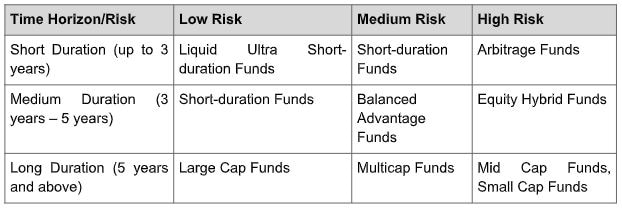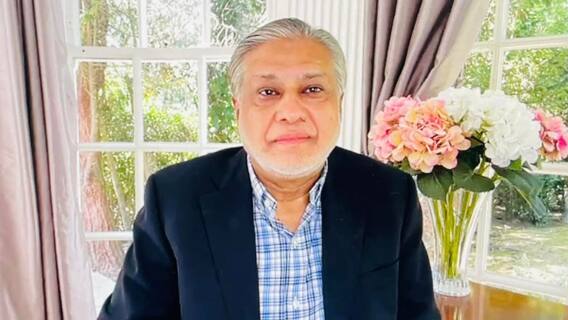Explorer
Advertisement
How to tag goals to your mutual fund investment
The Consumer Durables market is one of the fastest growing sectors in India and much of the onus lies in the rising disposable income of the middle class and easy credit facilities like zero-interest EMIs.

One of the best investment options for retail investors is mutual funds.
Mutual Fund Investment: Are you planning to buy a house or going on a foreign trip? Whatever be your short-term or long-term financial goal, it is always wiser to finance it through an investment rather than taking a loan for it. One of the best investment options for retail investors is mutual funds. They allow investors to reap greater returns due to the presence of a diversified portfolio of stocks and/or bonds. Moreover, they are managed by professional fund managers. This allows investors to benefit from professional fund management. In return of these efficient fund management services, an investor is required to pay a fee which can be as low as Rs. 100.
Invest in Mutual Funds to Achieve Your Financial Goals
A mutual fund is an investment instrument in pools in money from multiple investors and invest it in a basket of securities including equity, debt and other money market securities. There are various types of mutual funds, broadly divided into three categories - Equity Funds, Debt Funds and Hybrid Funds. As the names suggest, equity funds primarily invest in equities i.e. stocks of companies, debt funds invest in debt, bonds, money-market instruments etc., and hybrid funds invest in a mix of equity and debt.
Here’s how you can go about tagging your financial goals to mutual funds:
Step 1: Identify Your Financial Goals: The first and foremost thing you need to do is to identify your financial goal. It could be a foreign trip, financing of your child’s education, your retirement planning, purchase of a house or something else. Creation of an emergency fund should also find a mention in your list of financial plans. People often forget to create an emergency fund in good times, when there is a steady flow of income and are forced to withdraw their investments in times of emergencies. This not only leads to loss of wealth but also inconvenience. Thus, it is always wise to include the creation of an emergency fund in your list of financial plans.
Step 2: Evaluate Required Time To Achieve The Goal: After you have identified your financial goal, evaluate how much time is required to achieve it. Whether it is achievable in a short period of time or if it will take longer. For instance, if you plan to buy a car, then it is a relatively short term goal which can achieved in around 12 months. Whereas, if you plan to purchase a house then it is a relatively longer-term financial year which may take more than 10 or 20 years.
Step 3: Assess Your Risk Appetite: After you have evaluated your financial goal and the required time to achieve it, the next step assessment of your risk appetite. It is highly important for you to assess how much risk you can bear and which funds suit your risk appetite.
Step 4: Compare Funds: After you have assessed how much risk you can bear, the next step is the comparison of various mutual funds. Begin with deciding the asset class of the fund, whether you wish to invest in an equity, debt or hybrid fund. The next step is to select the mutual fund which best suits your requirements on the basis of the fund’s performance against its benchmark, its performance against its peers, its performance consistency, its fund manager’s experience, the assets under the fund’s management, expense ratio, etc.
Step 5: Consider The Tax Implications: It is very important to know and understand the tax implications on mutual funds. There are two types of earnings from a mutual fund investment - Dividends and Capital Gains - and both are taxed differently. While the mutual fund house deducts Dividend Distribution Tax (DDT) from the dividend paid to you at 10%, capital gains tax is taxable in the hands of the investor.
 *Long-term capital gains on equity mutual funds are exempt up to Rs. 1 lakh per annum.
Which Mutual Fund Suits Your Financial Requirements?
1. On the basis of Time Horizon
*Long-term capital gains on equity mutual funds are exempt up to Rs. 1 lakh per annum.
Which Mutual Fund Suits Your Financial Requirements?
1. On the basis of Time Horizon
 * More than 5 years - Equity Fund
2. On the Basis of Risk Appetite
* More than 5 years - Equity Fund
2. On the Basis of Risk Appetite

 *Long-term capital gains on equity mutual funds are exempt up to Rs. 1 lakh per annum.
Which Mutual Fund Suits Your Financial Requirements?
1. On the basis of Time Horizon
*Long-term capital gains on equity mutual funds are exempt up to Rs. 1 lakh per annum.
Which Mutual Fund Suits Your Financial Requirements?
1. On the basis of Time Horizon
 * More than 5 years - Equity Fund
2. On the Basis of Risk Appetite
* More than 5 years - Equity Fund
2. On the Basis of Risk Appetite

Follow Breaking News on ABP Live for more latest stories and trending topics. Watch breaking news and top headlines online on ABP News LIVE TV
View More
Advertisement
Trending News
Advertisement
Advertisement
Top Headlines
Election 2024
India
World
Cities
Advertisement








































